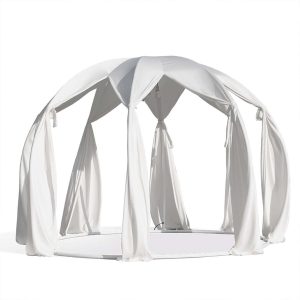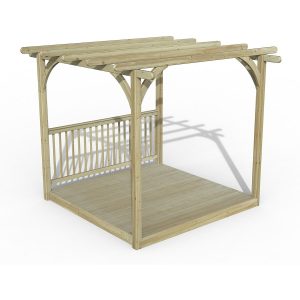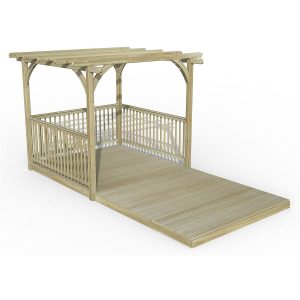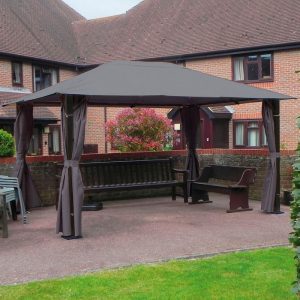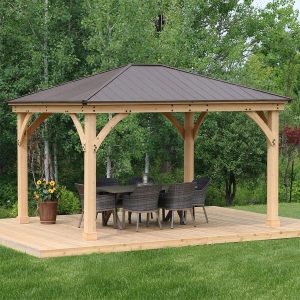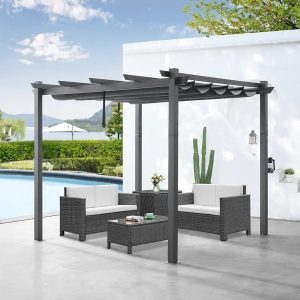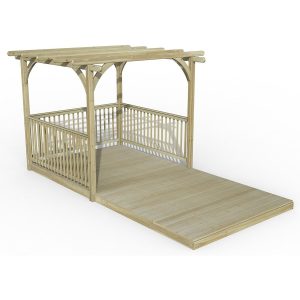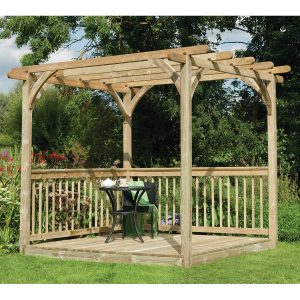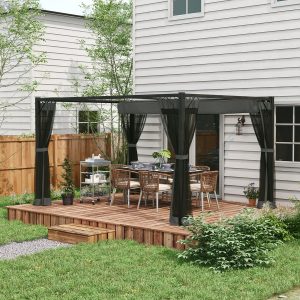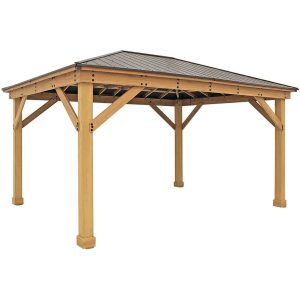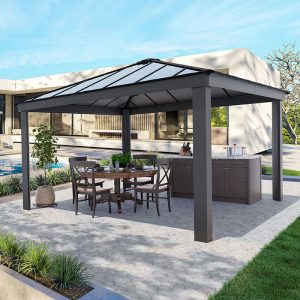Even though you may not reside on an extensive estate in the Mediterranean, this finely fashioned backyard enhancement will transport you there. The generous capacity of this cedar wood pergola for creeping vines and blossoms evokes images of bountiful vineyards embraced by serene, azure waters. The Backyard Discovery Cedar Wood Pergola has undergone PRO-TECT Testing and has been proven to withstand wind speeds of up to 160 kmh. Its rafter design not only exudes timeless elegance but also furnishes additional strength and shelter. With just a single pergola, you can infuse limitless garden allure. Dimensions – 4.3m x 3m (14ft x 10ft)












